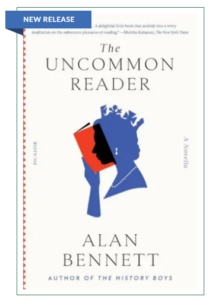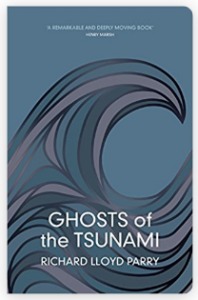The Books I’m Reading Next
As a former bookstore manager and avid reader since I learned how to, I always have way too many books on my To-Read List. Here are just a few I’m concentrating on getting read in the next few months.

A Gentleman in Moscow
Amor Towles
“In 1922, Count Alexander Rostov is deemed an unrepentant aristocrat by a Bolshevik tribunal, and is sentenced to house arrest in the Metropol, a grand hotel across the street from the Kremlin. Rostov, an indomitable man of erudition and wit, has never worked a day in his life, and must now live in an attic room while some of the most tumultuous decades in Russian history are unfolding outside the hotel’s doors. Unexpectedly, his reduced circumstances provide him entry into a much larger world of emotional discovery.
“Brimming with humor, a glittering cast of characters, and one beautifully rendered scene after another, this singular novel casts a spell as it relates the count’s endeavor to gain a deeper understanding of what it means to be a man of purpose.”
“How delightful that in an era as crude as ours this finely composed novel stretches out with old-World elegance.” — The Washington Post

The Uncommon Reader
Alan Bennett
“From one of England’s most celebrated writers, a funny and superbly observed novella about the Queen of England and the subversive power of reading
“When her corgis stray into a mobile library parked near Buckingham Palace, the Queen feels duty-bound to borrow a book. Discovering the joy of reading widely (from J. R. Ackerley, Jean Genet, and Ivy Compton-Burnett to the classics) and intelligently, she finds that her view of the world changes dramatically. Abetted in her newfound obsession by Norman, a young man from the royal kitchens, the Queen comes to question the prescribed order of the world and loses patience with the routines of her role as monarch. Her new passion for reading initially alarms the palace staff and soon leads to surprising and very funny consequences for the country at large.
“With the poignant and mischievous wit of The History Boys, England’s best-loved author Alan Bennett revels in the power of literature to change even the most uncommon reader’s life.”
“Alan Bennett is one of the greatest comic writers alive, and The Uncommon Reader is Bennett at his best—touching, thoughtful, hilarious, and exquisite in its observations.” — Helen Fielding, author of Bridget Jones’s Diary

How to Know a Person
David Brooks
“As David Brooks observes, ‘There is one skill that lies at the heart of any healthy person, family, school, community organization, or society: the ability to see someone else deeply and make them feel seen—to accurately know another person, to let them feel valued, heard, and understood.’
“And yet we humans don’t do this well. All around us are people who feel invisible, unseen, misunderstood. In How to Know a Person, Brooks sets out to help us do better, posing questions that are essential for all of us: If you want to know a person, what kind of attention should you cast on them? What kind of conversations should you have? What parts of a person’s story should you pay attention to?
“Driven by his trademark sense of curiosity and his determination to grow as a person, Brooks draws from the fields of psychology and neuroscience and from the worlds of theater, philosophy, history, and education to present a welcoming, hopeful, integrated approach to human connection. How to Know a Person helps readers become more understanding and considerate toward others, and to find the joy that comes from being seen. Along the way it offers a possible remedy for a society that is riven by fragmentation, hostility, and misperception.
“The act of seeing another person, Brooks argues, is profoundly creative: How can we look somebody in the eye and see something large in them, and in turn, see something larger in ourselves? How to Know a Person is for anyone searching for connection, and yearning to be understood.”
“Provocative and fascinating . . . seeks to do nothing less than revolutionize our notions about how we function and conduct our lives.” — The Philadelphia Inquirer

Trust
Hernan Diaz
“Even through the roar and effervescence of the 1920s, everyone in New York has heard of Benjamin and Helen Rask. He is a legendary Wall Street tycoon; she is the daughter of eccentric aristocrats. Together, they have risen to the very top of a world of seemingly endless wealth—all as a decade of excess and speculation draws to an end. But at what cost have they acquired their immense fortune? This is the mystery at the center of Bonds, a successful 1937 novel that all of New York seems to have read. Yet there are other versions of this tale of privilege and deceit.
“Hernan Diaz’s TRUST elegantly puts these competing narratives into conversation with one another—and in tension with the perspective of one woman bent on disentangling fact from fiction. The result is a novel that spans over a century and becomes more exhilarating with each new revelation.
“At once an immersive story and a brilliant literary puzzle, TRUST engages the reader in a quest for the truth while confronting the deceptions that often live at the heart of personal relationships, the reality-warping force of capital, and the ease with which power can manipulate facts.”
“[A] riveting story of class, capitalism, and greed. The result is a mesmerizing metafictional alchemy of grand scope and even grander accomplishment.” — Esquire

How High We Go in the Dark
Sequoia Nagamatsu
“In 2030, a grieving archeologist arrives in the Arctic Circle to continue the work of his recently deceased daughter at the Batagaika Crater, where researchers are studying long-buried secrets now revealed in melting permafrost, including the perfectly preserved remains of a girl who appears to have died of an ancient virus.
“Once unleashed, the Arctic plague will reshape life on Earth for generations to come, quickly traversing the globe, forcing humanity to devise a myriad of moving and inventive ways to embrace possibility in the face of tragedy. In a theme park designed for terminally ill children, a cynical employee falls in love with a mother desperate to hold on to her infected son. A heartbroken scientist searching for a cure finds a second chance at fatherhood when one of his test subjects—a pig—develops the capacity for human speech. A widowed painter and her teenaged granddaughter embark on a cosmic quest to locate a new home planet.
“From funerary skyscrapers to hotels for the dead to interstellar starships, Sequoia Nagamatsu takes readers on a wildly original and compassionate journey, spanning continents, centuries, and even celestial bodies to tell a story about the resilience of the human spirit, our infinite capacity to dream, and the connective threads that tie us all together in the universe.”
“Exactly the white-hot missive of hope, humanity, and compassion you need . . . Each story is a marvel of imagination . . . Rich in scope and vision, with each nested story masterfully rippling across others, this is a visionary novel about grief, resilience, and how the human spirit endures.” — Esquire

The Intuitionist
Colson Whitehead
“It is a time of calamity in a major metropolitan city’s Department of Elevator Inspectors, and Lila Mae Watson, the first black female elevator inspector in the history of the department, is at the center of it. There are two warring factions within the department: the Empiricists, who work by the book and dutifully check for striations on the winch cable and such; and the Intuitionists, who are simply able to enter the elevator cab in question, meditate, and intuit any defects.
“Lila Mae is an Intuitionist and, it just so happens, has the highest accuracy rate in the entire department. But when an elevator in a new city building goes into total freefall on Lila Mae’s watch, chaos ensues. It’s an election year in the Elevator Guild, and the good-old-boy Empiricists would love nothing more than to assign the blame to an Intuitionist. But Lila Mae is never wrong.
“The sudden appearance of excerpts from the lost notebooks of Intuitionism’s founder, James Fulton, has also caused quite a stir. The notebooks describe Fulton’s work on the “black box,” a perfect elevator that could reinvent the city as radically as the first passenger elevator did when patented by Elisha Otis in the nineteenth century. When Lila Mae goes underground to investigate the crash, she becomes involved in the search for the portions of the notebooks that are still missing and uncovers a secret that will change her life forever.”
“The Intuitionist is the story of a love affair with the steel and stone, machinery and architecture of the city. It’s not a pretty love, but a working-class passion for the stench of humanity that its heroine, Lila Mae Watson, has made her own. But as always with love there is betrayal. This extraordinary novel is the first voice in a powerful chorus to come.” — Walter Mosley

Ghosts of the Tsunami
Richard Lloyd Parry
“On 11 March 2011, a massive earthquake sent a 120-foot-high tsunami smashing into the coast of north-east Japan. By the time the sea retreated, more than 18,500 people had been crushed, burned to death, or drowned.
“It was Japan’s greatest single loss of life since the atomic bombing of Nagasaki. It set off a national crisis, and the meltdown of a nuclear power plant. And even after the immediate emergency had abated, the trauma of the disaster continued to express itself in bizarre and mysterious ways.
“Richard Lloyd Parry, an award-winning foreign correspondent, lived through the earthquake in Tokyo, and spent six years reporting from the disaster zone. There he encountered stories of ghosts and hauntings. He met a priest who performed exorcisms on people possessed by the spirits of the dead. And he found himself drawn back again and again to a village which had suffered the greatest loss of all, a community tormented by unbearable mysteries of its own.
“What really happened to the local children as they waited in the school playground in the moments before the tsunami? Why did their teachers not evacuate them to safety? And why was the unbearable truth being so stubbornly covered up?
“Ghosts of the Tsunami is a classic of literary non-fiction, a heart-breaking and intimate account of an epic tragedy, told through the personal accounts of those who lived through it. It tells the story of how a nation faced a catastrophe, and the bleak struggle to find consolation in the ruins.”
“Powerful . . . Lloyd Parry’s account is truly haunting, and remains etched in the brain and heart long after the book is over.” — Lisa Levy, New Republic
